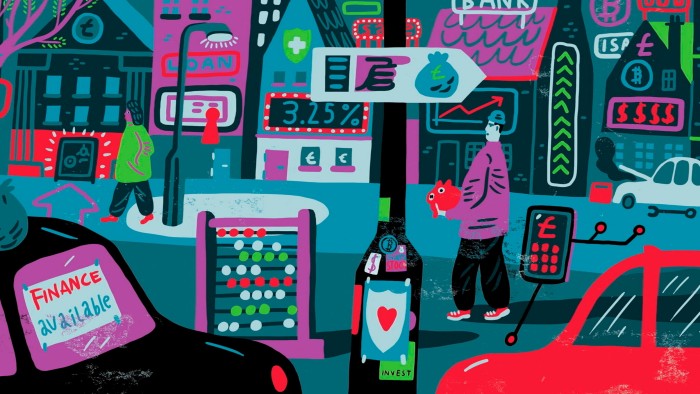Unlock the Editor’s Digest for free
Roula Khalaf, Editor of the FT, selects her favourite stories in this weekly newsletter.
What are the five most important decisions you’ll have to make about money in the future?
In some ways, it would be easier to suggest 50! I’ve compiled this list with teens and twenty-somethings in mind, but I hope that giving some serious thought to these questions will also help young professionals deal with their financial lives.
Mastering Money
This article is part of Mastering Money, an FT Schools report for students and teens on how to make good financial decisions. Other articles cover budgeting, investing, social media and starting a business.
For more on the FT Schools programme, which offers free FT access as well as teaching resources, click here.
There are, of course, many aspects of your finances that you cannot choose or control — the health of the economy when you leave school or graduate is one. Another is how wealthy (or not) your parents might be, and how likely they are to help you out financially, for example by helping you get on to the property ladder.
The world may not be fair, but it pays to be better informed. So let’s concentrate on some financial decisions that you can control.
1) Who you marry
I’m not saying you should aspire to be a gold digger. But finding someone who shares the same financial values and goals as you do is the foundation of a great supportive partnership. Can you talk about money together without feeling awkward? From splitting the bill on your first date to moving in together and maybe one day starting a family, open and honest financial conversations will be needed. Arguments over money are one of the leading causes of divorce, so choose wisely!
2) Career choice
Lifetime earnings potential is something that few school leavers consider when heading off to university or applying for their first jobs, but more should. Having a sense of your future employment prospects, and the kind of career paths and salaries potentially available, should form part of your decision-making process.
That said, money isn’t everything — enjoying your work is important too. Most adults love talking about themselves, so don’t be shy if you get the chance to ask questions about people’s jobs and careers. And a question for workers of all ages is how AI might impact careers. Learning doesn’t stop when you leave school, and seeking out new skills could keep you ahead of the curve.
3) How early you start investing
If you can afford a Netflix subscription, could you afford to lock some money up for the long-term? Under 18s in the UK might already have a Junior Isa, but over 18s can open a stocks-and-shares Isa and start investing tax-free from just £1.
Yes, there is a risk you could lose money. But time is the biggest ally of the investor. Even if you can only afford to invest quite small sums every month, the power of compounding (where there’s a “snowball effect” as your money grows) will boost your returns in the decades to come. The younger you are when you get into this habit, the more you will learn, becoming a more confident investor over time.
4) Who you work for
This isn’t just about salary. When you start working, it is important to know how much your employer will pay into your workplace pension (this is also a great question to ask at a job interview). Some companies are much more generous than others.
Pension contributions are usually expressed as a percentage of your pay. The bare minimum UK employers can pay in is 3 per cent, but this rises to double digits at some firms (note that what your employer pays into your pension is in addition to your salary). To get it, you will have to contribute a percentage of your pay too.
While retirement might seem a long way off, the sooner you start saving into a pension, the better off you could be in future. In this FT article, I calculated that opting out of the workplace pension in my first job has cost me £62,000 (and counting).
5) Day to day spending
What you spend your money on is up to you (including the cliché of takeaway coffee and avocado toast). But spending more than you earn is a sure-fire route to financial ruin.
Avoiding the trap of expensive credit card debt is a money mistake many people I know wish they’d avoided in their 20s. In an example taken from MoneySavingExpert.com, if someone borrows £3,000 aged 21 and only makes the minimum repayment, they’d be nearly 50 by the time they cleared the debt, and would repay nearly £5,000 in interest on top of the original amount. Ouch!
Digital tools are making it even easier to draw up a budget and keep on top of your money moves. And the best money saving tip of all? Being organised and planning ahead. The financial world profits from consumer inertia. So stay on top of the best savings rates; haggle for a better deal when contracts end; and be sure to avoid late payment fees on bills and “buy now, pay later” deals that could damage your credit score.
And you know what? Being good with money is definitely a skill that will impress your future life partner.
Claer Barrett is the FT’s consumer editor and author of the FT’s Sort Your Financial Life Out newsletter series; claer.barrett@ft.com; Instagram @ClaerB
What financial tips would you add for young adults? Share your ideas in the comments section below.




